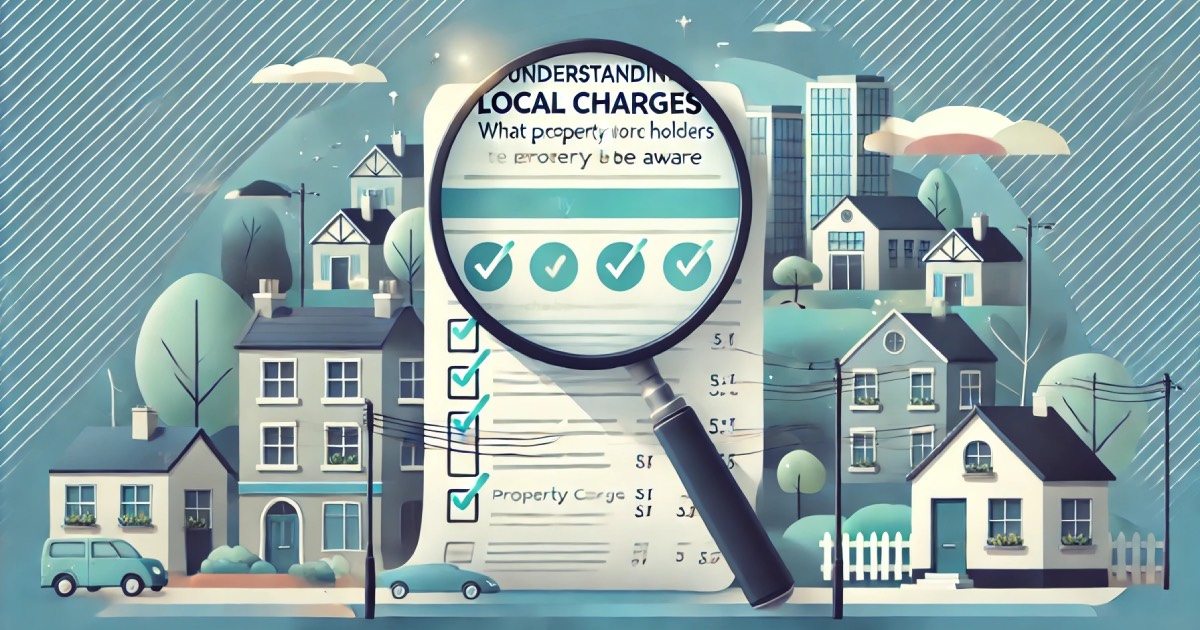Understanding Local charges: What Property holders Need to Be aware

Understanding local property taxes is essential for property owners to effectively manage their finances and comply with legal obligations. Here's an overview of what property holders need to know:
1. What Are Property Taxes?
Property taxes are levies imposed by local governments (such as municipalities, counties, or school districts) on real estate properties. These taxes fund essential public services like schools, police, fire departments, road maintenance, and libraries.
2. How Are Property Taxes Calculated?
Property taxes are typically calculated using the formula:
Property Tax = Property Assessed Value × Tax Rate
- Assessed Value: The local tax assessor evaluates your property's market value, considering factors like location, size, improvements, and comparable sales.
- Tax Rate: Often expressed as a percentage (millage rate), this rate is determined by local government budgets and varies across regions.
3. Factors Influencing Property Taxes
- Property Location: Taxes vary by jurisdiction due to differences in local budgets and services.
- Improvements or Renovations: Enhancements to your property, such as adding a pool or expanding square footage, may increase its assessed value.
- Market Trends: Rising property values in your area can lead to higher assessments and taxes.
- Exemptions and Deductions: Many areas offer tax relief for certain groups, like seniors, veterans, or homeowners who use their property as a primary residence.
4. Key Deadlines
- Assessment Dates: Know when your property is assessed and review the valuation for accuracy.
- Payment Deadlines: Property taxes are usually paid annually or semi-annually. Missing deadlines may result in penalties or liens on your property.
5. Disputing Your Tax Assessment
If you believe your property's assessed value is incorrect, you can:
- Request the assessment report and verify the details.
- File an appeal with your local tax assessor's office, providing evidence like comparable sales or appraisal reports.
6. Tax Relief Programs
Explore programs that may reduce your tax liability:
- Homestead exemptions
- Senior or veteran discounts
- Agricultural or conservation use designations
7. Planning for Property Taxes
- Include Taxes in Mortgage Payments: Many lenders offer escrow accounts to manage annual property tax payments.
- Stay Informed: Tax laws and rates can change, so stay updated with local government notices.
8. Impact on Real Estate Transactions
- Buying a Property: Research property tax history and anticipate future costs.
- Selling a Property: Unpaid property taxes could complicate the sale.
By staying informed about property taxes, you can budget more effectively, ensure compliance, and potentially save money through exemptions and appeals. If you're ever uncertain, consulting a local tax professional can provide tailored advice.










